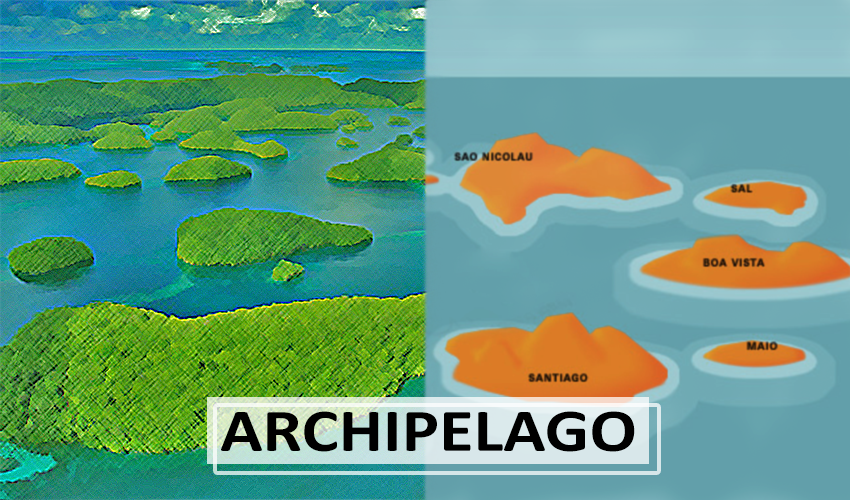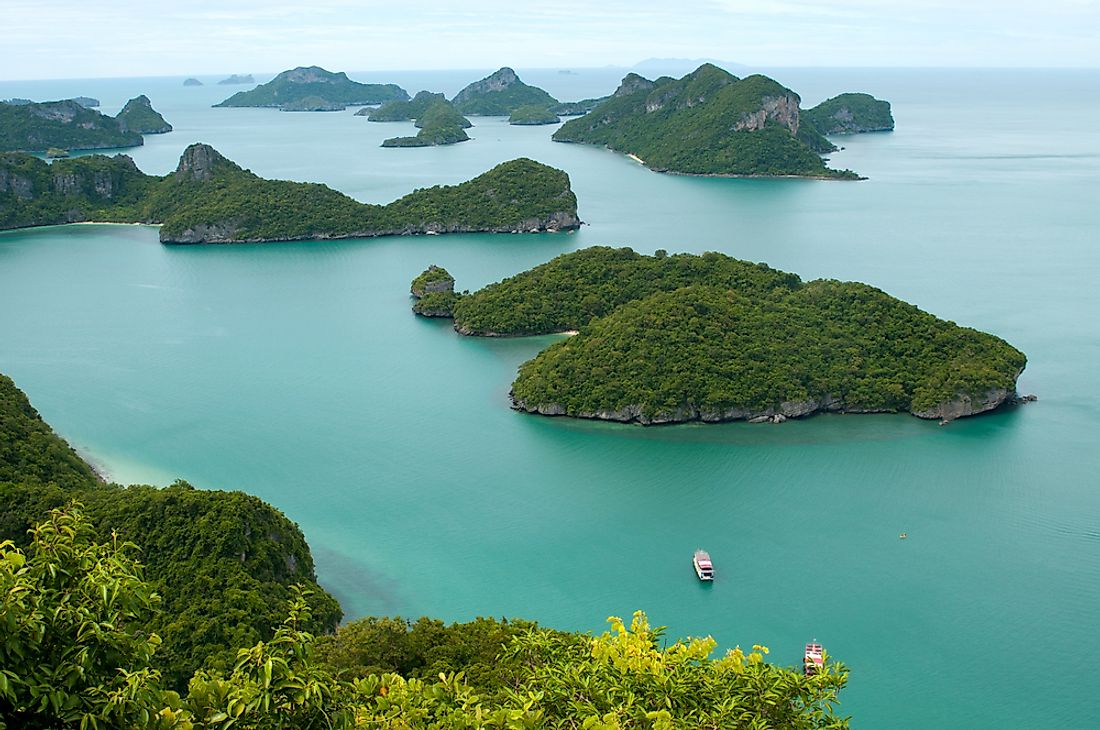How Is An Archipelago Significant To World History
An archipelago is a chain of islands located in close proximity to one another. They can be found in all the world’s oceans and seas, and are often of great significance to world history. An archipelago can provide a bridge between continents and civilizations, allowing for the cross-cultural exchange of goods, ideas, and people. Throughout history, many of the world’s most powerful empires have utilized archipelagos to further their own interests, with examples ranging from the Greek-controlled Aegean Sea to the British-controlled Caribbean. Additionally, these island chains have often been used as strategic military locations, providing easy access to deep sea ports and natural resources. As a result, archipelagos have seen their fair share of armed conflicts over the years, with many battles fought over control of these islands. The importance of archipelagos to world history cannot be overstated, and they remain an essential part of the global landscape today.
Definition of an Archipelago
An archipelago is a group of islands or other bodies of land that are closely located within a body of water. This term has been used throughout history to refer to groupings of islands, including some of the world’s most well-known archipelagos such as the Maldives, Galapagos, and the Hawaiian Islands.
Archipelagos have played an important role in world history, as the physical boundaries of the islands have often contributed to the development of unique cultures and societies. Additionally, the strategic location of archipelagos has made them attractive to empires and nations throughout the centuries, as they offer a valuable way to control the flow of trade and resources in the region.
The islands of an archipelago are often linked together through trade and cultural exchange, allowing for the sharing of knowledge and technology between the different populations. This exchange often leads to the growth of powerful empires and nations, which have had a major influence on the course of world history.
Archipelagos also offer a unique natural environment, with many species of plants and animals that are found nowhere else in the world. This has made them attractive to scientists, and many archipelagos have been declared as protected areas, allowing them to be preserved for future generations.
In conclusion, archipelagos have played an important role in world history, by providing a physical and cultural barrier between different regions, as well as offering a unique natural environment. The strategic location of archipelagos has made them attractive to empires and nations throughout the centuries, and the exchange of resources and technology has often been a major factor in the development of powerful empires and nations.
Geographical Impact of an Archipelago
An archipelago consists of a group of islands that are close to one another — often surrounded by a body of water, such as an ocean or a sea. From a geographical perspective, an archipelago has considerable significance. It can play an important role in the history of a region, from the evolution of trade and transportation to the development of culture, language, and even religion.
Archipelagos have been of great strategic importance for centuries, as they served as natural barriers and defensive positions for those who lived on them. This was especially true during times of war, when the islands were used to store supplies and troops. Furthermore, the islands were often considered to be ideal locations for naval bases, since they provided access to open waters, while also offering shelter from storms and enemy ships.
Moreover, the presence of an archipelago can also be beneficial for navigation. It can provide navigators with landmarks, and the islands can act as a kind of stepping stone from one port to another. This was especially true during the Age of Exploration, when European explorers were able to chart their course with greater accuracy by taking advantage of the islands.
Overall, an archipelago has had a tremendous impact on world history. It has served as a natural barrier, a strategic point of contention, and a navigational landmark. In addition, it has also been the source of many cultural and religious influences, and has played an important role in the development of trade and transportation.
Political Impact of an Archipelago
Archipelagos have played a significant role in world history by influencing politics and international relations. An archipelago is a group of islands scattered close to each other in the sea and can have a massive impact on the political landscape. As the ancient Greeks recognized, archipelagos could be used as defensive barriers to protect against naval attacks. This allowed empires to expand their territories through the strategic placement of fortifications. In the modern era, archipelagos have been used to likewise create buffer zones between hostile nations, preventing them from directly engaging in conflict, while also serving as a platform for diplomatic negotiations.
In addition, archipelagos have served as stepping stones for international exploration and colonization. The discovery of new land and resources changed the course of world history and shaped the modern world. For example, the discovery of the Caribbean and the East Indies in the 16th century led to the establishment of global trade routes, which in turn gave rise to the European colonization of the Americas and the Indian subcontinent.
Archipelagos are also significant to world history due to their strategic location and resources. They can provide access to nearby markets, making them attractive to a variety of investors. Additionally, many archipelagos have abundant natural resources, such as fish, oil, and minerals, which can be exploited to the benefit of both the local population and the international community.
These examples illustrate how an archipelago can be a powerful force in world history, enabling nations to expand their territories, colonize new lands, establish trade routes, and exploit natural resources. As such, archipelagos are an important and influential factor in the shaping of global politics and relations.

Cultural Impact of an Archipelago
The archipelago is a land formation of multiple islands or islets that are close together, often forming a chain. Their significance to world history is far-reaching and global, with their existence having a huge impact on the culture of the areas they are located in.
Archipelagos can provide geographical barriers that split cultures and ethnicities, which can result in different customs and beliefs developing in each area. Navigation is also a key factor, as an archipelago can often act as a barrier between two different regions, creating distinct cultural identities. This is evident in the numerous islands found in the Mediterranean, each having its own unique cultural identity and heritage.
In addition, an archipelago can have a huge influence on trade and commerce. Islands in the Caribbean, such as Bermuda, became the hub of the global slave trade, as the geography of the area allowed for easy access to the Americas and Europe.
Archipelagos have also served a military purpose, as their location can make them difficult to access, providing a strategic advantage. The numerous islands in the Pacific Ocean were key battlegrounds during World War II, with the Japanese using them as a defensive measure against Allied forces.
Archipelagos have been integral to world history, with their geographical location and cultural influence having a major impact on the development of cultures, economies, and militaries throughout the world.
Economic Impact of an Archipelago
An archipelago can have a major impact on the global economy. By providing a vast array of resources, both natural and man-made, archipelagos have played an important role in the development of the world. With many islands located close together, the resources of an archipelago can be easily harvested and used to create a variety of products and services. This economic activity helps to create jobs, stimulate new industries, and provide a stable source of income. Furthermore, many archipelagos are strategically located close to major shipping lanes, making them ideal locations for trade and commerce. In addition, the presence of an archipelago can help to attract tourists and investors, boosting the local economy even further. As such, archipelagos have played an important part in the economic development of the world and continue to do so today.
Significance of an Archipelago in World History
An archipelago is a chain or group of islands, typically scattered over a body of water and often having a shared cultural or political history. Throughout history, archipelagos have had a great significance in the political and economic development of the world. They have been a strategic asset, providing a safe haven and route of communication for trading and military operations.
Archipelagos have also been instrumental in the development of cultural exchange, with the islands providing an ideal environment for the sharing of languages and customs. The islands of the Pacific, for example, were key to the spread of Polynesian culture throughout the region. Similarly, the colonial powers of Europe found the islands of the Caribbean to be a particularly suitable target for colonization.
In recent times, archipelagos have been a key contributor to the global economy. For instance, the islands of the Caribbean have become popular tourist destinations, with the region’s stunning beaches and lush tropical forests attracting millions of visitors each year. Similarly, the islands of the Mediterranean have become major hubs of commerce, providing an excellent base for the growth of shipping and trading routes.
The importance of archipelagos to world history is undeniable. They have played a crucial role in the development of global politics, economics, and culture, and will continue to do so for many years to come.
FAQs About the How Is An Archipelago Significant To World History
1. What is an archipelago?
An archipelago is a group of islands, islets, and/or reefs.
2. How is an archipelago significant to world history?
Archipelagos have served as important locations for migration, trade, and cultural exchange throughout history. They have also been sites of military conflict and political power struggles, as well as sources of resources and inspiration for artistic and literary works.
3. What are some examples of important archipelagos?
Some of the most important archipelagos in world history include the Hawaiian Islands, the British Isles, the Greek Islands, the Aleutian Islands, the Caribbean Islands, and the Galapagos Islands.
Conclusion
An archipelago is a very significant feature of world history. Throughout history, archipelagos have served as major trading hubs, allowing for the exchange of goods and culture between different parts of the world. Additionally, archipelagos have provided a place of refuge and safety for many cultures and civilizations. Finally, archipelagos have provided an ideal environment for the development of unique flora and fauna, adding to the diversity of the world’s ecology. Thus, the archipelago has been an integral part of world history, providing a variety of benefits to both trading and cultural development.



